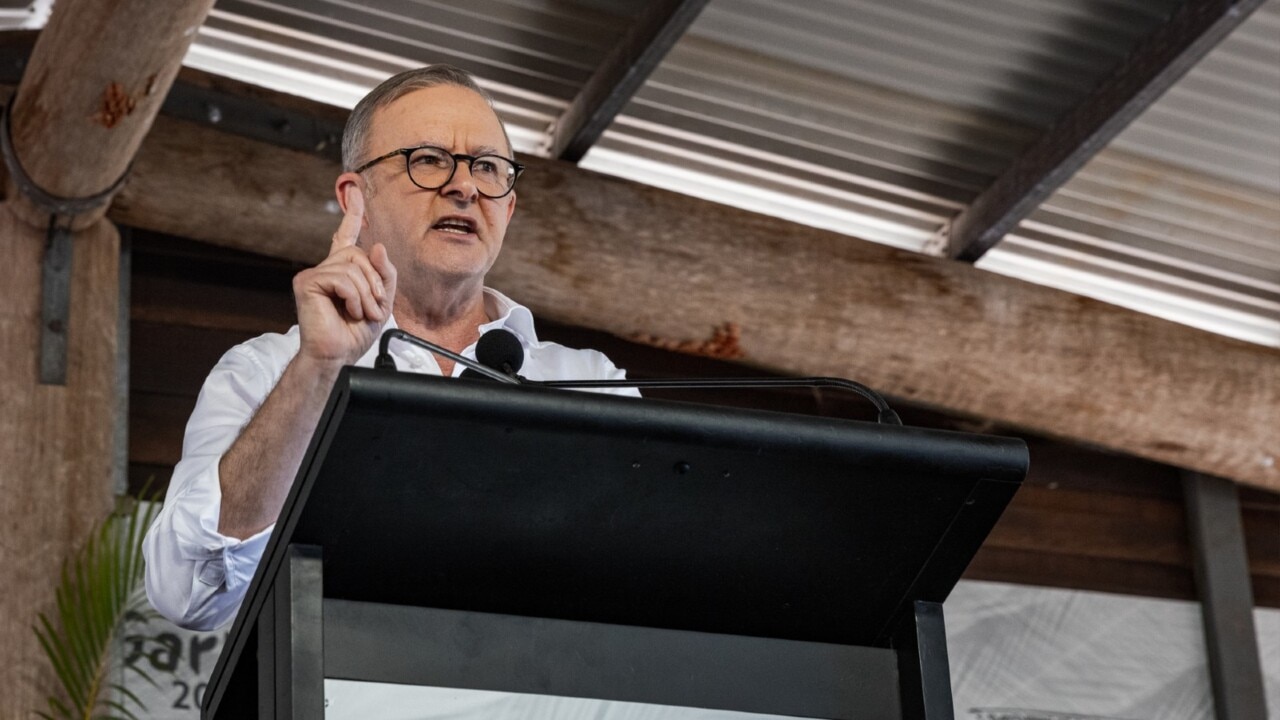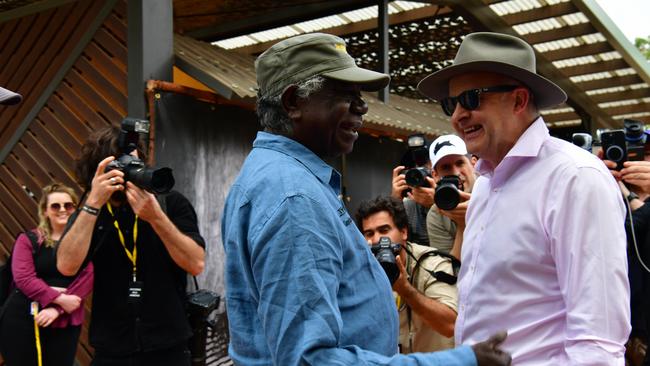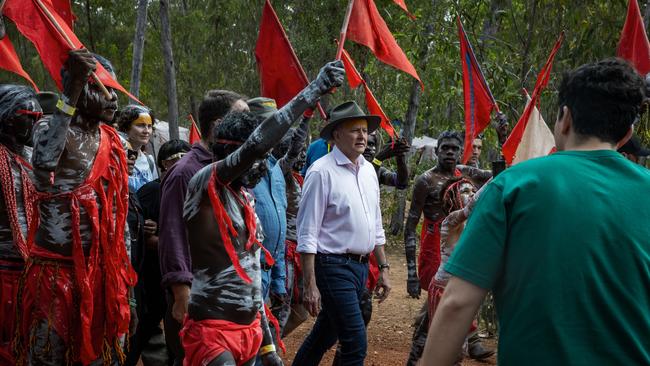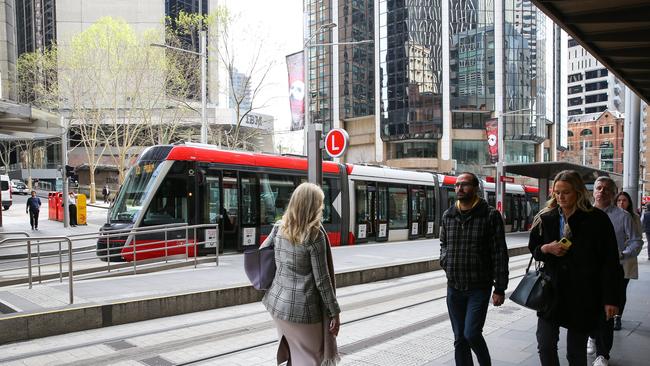
But the Uluru statement is a complex document that covers 26-pages with extensive references to a further 86-pages, which comprise a detailed set of minutes that record the decisions of 13 dialogues or seminars held by the Aboriginal and Torres Strait Islander communities around Australia.
When Australian boards supported the “Yes” campaign and its embrace of the Uluru Statement, the full statement and its dialogues were not available. Our top chief executives should have known better than to endorse proposals where they didn’t know the detail of what was being embraced.
Now thanks to freedom of information requests the details are available, all Australians can now appreciate the objectives that the Aboriginal and Torres Strait Islander communities believe their voice body will achieve.
The Uluru statement skilfully brings together the 13 dialogues to produce a set of aims which Anthony Albanese has embraced as part of the Yes campaign and is therefore also being embraced by large parts of corporate Australia.

At the base of the Uluru statement is a deep hostility to the actions non-aboriginal people who came to Australia after James Cook visited and triggered an “invasion”. But that hostility extends to present day where on a proportionate basis “we are the most incarcerated people on the planet”.
The 13 dialogues showed the Aboriginal and Torres Strait island communities had no interest in a patronising preamble to the constitution, which merely sets out their role in Australia’s history. Many Australians believe a “Yes” vote deliver such a preamble to unite the nation. That’s not what the Uluru statement is about. Many will see it as a very divisive document.
The Uluru statement requires recognising “the ancient jurisdictions of First Nation law” and the fact that Aboriginal and Torres Strait Islanders have never ceded “our sovereignty”.
Under the Uluru statement, the voice body should be designed so that it “could support and promote” a treaty-making process which is seen as “a pathway to recognition of sovereignty” and “the vehicle to achieve self-determination, autonomy and self-government”.
The Uluru statement states: “A Treaty could include a proper say in decision-making, the establishment of a truth commission, reparations, a financial settlement (such as seeking a percentage of GDP), the resolution of land, water and resources issues, recognition of authority and customary law, and guarantees of respect for the rights of Aboriginal and Torres Strait Islander Peoples”
While the Uluru statement wants the voice body to foster a treaty that involves reparations that might be related to the GDP, It does not spell out how the calculation might be made. But a low starting point of, say, one per cent of GDP each year would equal around $23bn.

Yet on the surface, the wording of the voice referendum gives no hint that an aim of the body being created is to trigger a treaty that involves reparations. But look deeper. The referendum proposal has been brilliantly crafted by those advising the Aboriginal and Torres Strait Islander communities to achieve the Uluru statement goals.
First the proposed words state that “the parliament shall have power to make laws with respect to matters relating to the Aboriginal and Torres Strait Islander voice, including its composition, functions, powers and procedures”.
Accordingly, non-aboriginal Australians reading those words might not conceive of the Australian parliament agreeing to a treaty with reparations.
But in the wording, the powers of the Australian parliament are to be qualified by being “subject to this Constitution”.
And if the Yes vote is passed, then the constitution will say in unambiguous terms that voice body can make representations on matters relating to Aboriginal and Torres Strait Islander peoples. There is no qualification to the word “matters” so unless the High Court decides otherwise then just about every matter to be considered by the public service and parliament will involve at least some Aboriginal and Torres Strait Islander peoples.
So if that constitutional interpretation is correct, then the power of the voice to make representations covers almost everything a government and its public service might do.
But the voice body can only make representations not decisions, so again on the surface, there is no way such a body can trigger the aims of the Uluru statement.
But the Uluru constitutional strategists brilliantly included public servants in the ambit of the voice body, which means that no decision on thousands of matters that are considered each year by the public service can be made without full consideration of matters raised by the voice body.
And it is this is the public service representation power that has the potential to achieve the full aims of the Uluru statement, which Albanese has embraced.
Assuming it is properly resourced (and the High Court is likely to ensure that it is) then the voice body can use its power to make representations on vast numbers of public service decisions which will clog up the system and make government unworkable. A treaty will be the only way out.
Advocates of the Yes vote legitimately say that the body has no intention of undertaking such a clogging manoeuvre.
That may well be the case, but the constitutional change should have been worded in a way that prevented the voice body from having that clogging power and not relying on it making decisions in accordance with what non Aboriginals believe it should do.
Given the Uluru statement clearly sets out that an aim of the voice must be to seek ways to gain a treaty, then clogging is clearly a possible strategy.
Parts of the Liberal Party have a deep fury that leading companies are advocating that Australians vote “Yes” and therefore embrace on such a divisive and financially dangerous course.
If big reparations are required and the Coalition gains power, then almost certainly they will demand that the large companies meet the bill.
And the anger that has been created is so great that at least on the agenda is consideration of a much higher rate of tax for all large companies, with the proceeds (assuming no reparations) going to help smaller enterprises.
When large organisations play blatant politics, advocating a policy against the current opinions of the majority of Australians to please the Prime Minister of the day, they play a dangerous game. The current generation of CEO’s should learn from their predecessors.
More Coverage







A significant number of large Australian corporations have supported the Australian Prime Minister in his commitment to embrace the Uluru Statement from the Heart “in full” as part of the “Yes” vote.